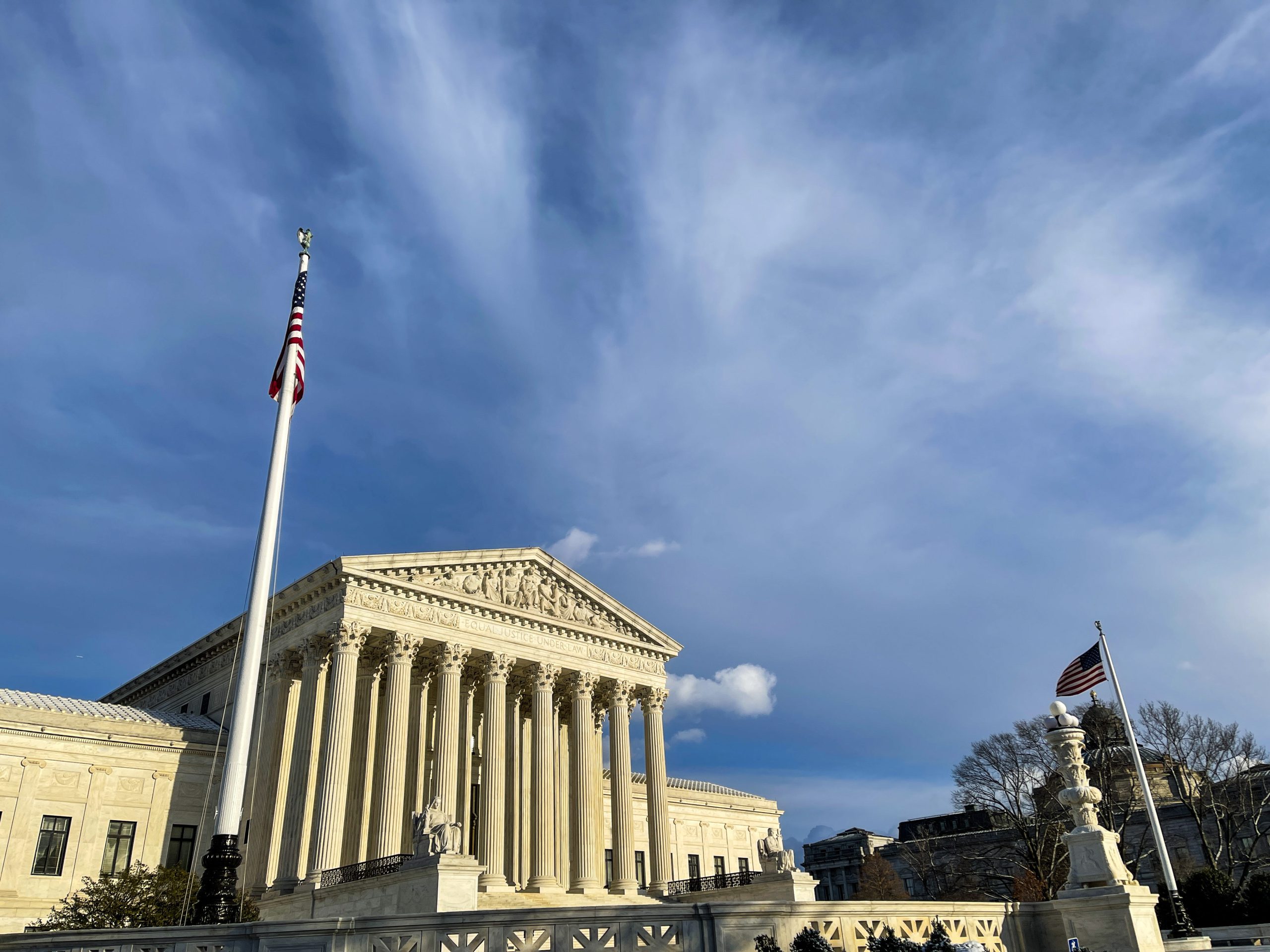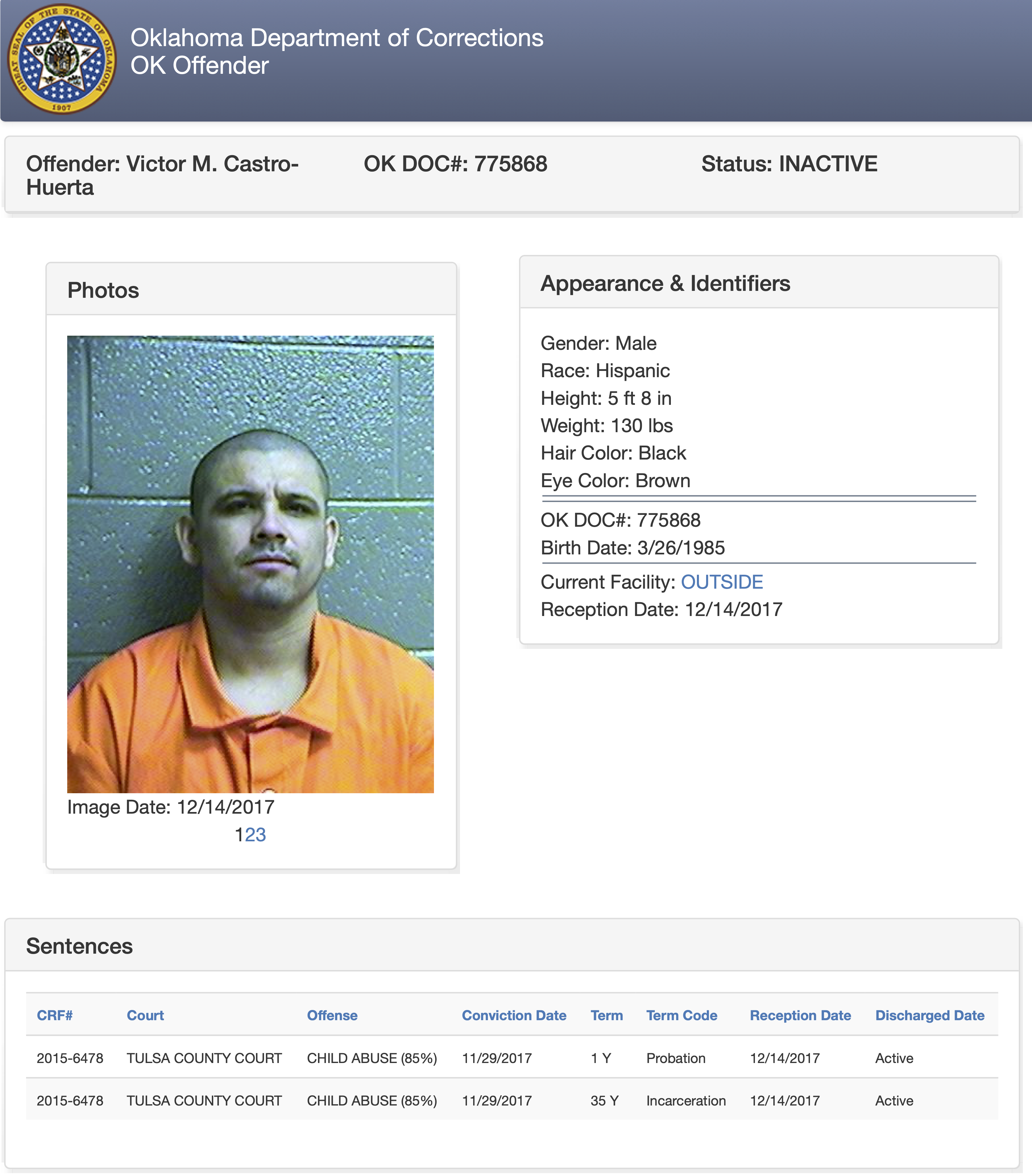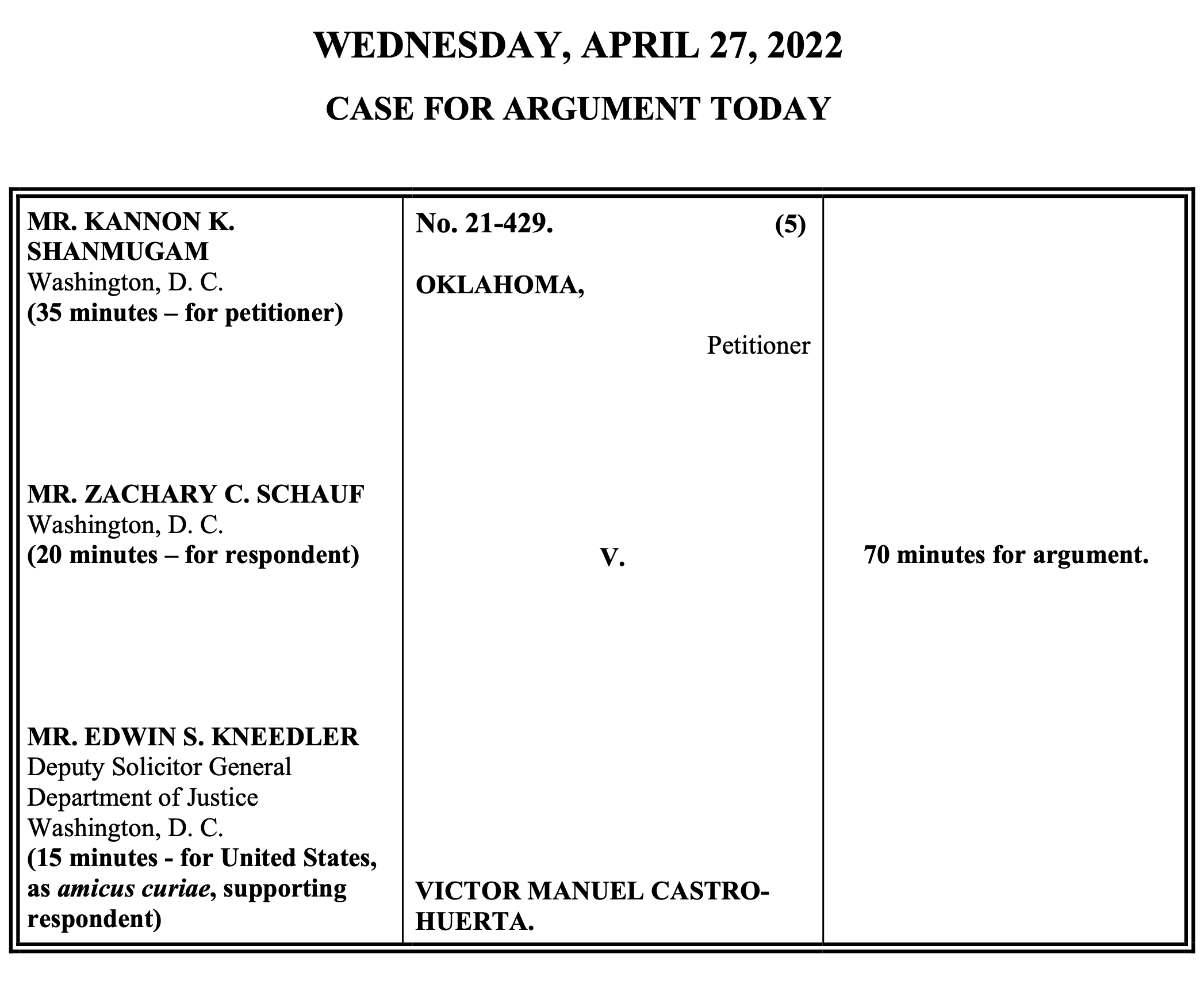Indianz.Com > News > Supreme Court takes up contentious Indian Country case on final day of session

Supreme Court takes up contentious Indian Country case on final day of session
Tuesday, April 26, 2022
Indianz.Com
WASHINGTON, D.C. —
The nation’s highest court is set for another tribal sovereignty showdown as the state of Oklahoma continues efforts to weaken a landmark treaty rights decision.
On Wednesday morning, the final day of the October 2021 term, the U.S. Supreme Court hears arguments in Oklahoma v. Castro-Huerta. The closely-watched case stems from a historic ruling — issued barely two years ago — in which Oklahoma was barred from prosecuting tribal citizens for crimes committed in Indian Country.
Up until the McGirt decision from June 2020, the state had been illegally exercising jurisdiction on reservations for more than 100 years. While the ruling is rooted in promises made in tribal treaties, it merely confirms that authority for crimes committed by American Indians and Alaska Natives rests with tribal nations and with the United States, a situation common across Indian Country.
Oklahoma Gov. Kevin Stitt (R) has taken a different view of the legal landscape, flooding the high court with dozens of petitions aimed at undermining McGirt in as many ways possible. In public remarks, he’s repeatedly spoken of a crisis that he claims was brought about by a case that the state lost during his second year in office.
“Oklahoma has been robbed of the authority to prosecute crimes,” Stitt said during the State of the State address in February. “Put simply, McGirt jeopardizes justice.”
Finally, one additional party has been granted approval to appear at the Castro-Huerta hearing. The United States will be represented by another well-experienced Supreme Court practitioner — Edwin S. Kneedler of the Department of Justice, who argued McGirt as well as Murphy, the cases that reaffirmed the presence of Indian Country in Oklahoma. “Federal law enforcement agencies in Oklahoma are working diligently with tribal and State partners to address the increased caseload occasioned by McGirt, including by indicting respondent here,” the federal government’s April 4 brief reads, reminding the justices that Castro-Huerta is indeed being prosecuted for child neglect in Indian Country. The brief also acknowledges that punishments in the federal system are indeed different than those in the Oklahoma courts. But government attorneys point out that parole is not possible for federal criminal defendants. “While Oklahoma contends that those efforts may result in shorter federal sentences, it ignores the differences between the availability of parole in the state and federal systems,” the brief continues. Kneedler has 15 minutes to present on Wednesday.Chief Hoskin responds to Oklahoma governor's State of the State address https://t.co/jvGnoVRQei @CherokeeNation pic.twitter.com/DokLHIL5BB
— Anadisgoi (@Anadisgoi) February 7, 2022

Related Stories
Supreme Court nominee advances with show of support for tribal sovereignty (April 5, 2022)Supreme Court hears cases with high stakes for Indian Country (February 21, 2022)
Gaylord News: Supreme Court takes another look at Indian Country dispute (January 31, 2022)
Chuck Hoskin: Cherokee Nation deserves to be treated with respect (January 31, 2022)
Supreme Court surprises by taking up contentious Indian law case (January 21, 2022)
Search
Filed Under
Tags
More Headlines
Senate committee schedules confirmation hearing for Interior nominee
Fact Sheet: Department of Health and Human Services to undergo ‘dramatic restructuring’
Press Release: Department of Health and Human Services to undergo ‘dramatic restructuring’
Native America Calling: The new Social Security reality for Native elders
Montana Free Press: Hip-hop artist Foreshadow celebrates latest release
Cronkite News: Bill creates alert system for missing and murdered relatives
Bureau of Indian Affairs approves HEARTH Act regulations for Mohegan Tribe
House Subcommittee on Indian and Insular Affairs sets field hearing for self-determination anniversary
Native America Calling: Sometimes, COVID doesn’t go away
Native America Calling: The changing landscape for subsistence hunting and fishing
Press Release: Oklahoma Indian Gaming Association weighs in on sports betting legislation
Press Release: Sen. Mike Rounds (R-South Dakota) calls for commission on crime in Indian Country
Press Release: Sen. Schatz (D-Hawaii) criticizes closure of Department of Education
Press Release: National Congress of American Indians condemns dismantling of Department of Education
NAFOA: 5 Things You Need to Know this Week (March 24, 2025)
More Headlines
Fact Sheet: Department of Health and Human Services to undergo ‘dramatic restructuring’
Press Release: Department of Health and Human Services to undergo ‘dramatic restructuring’
Native America Calling: The new Social Security reality for Native elders
Montana Free Press: Hip-hop artist Foreshadow celebrates latest release
Cronkite News: Bill creates alert system for missing and murdered relatives
Bureau of Indian Affairs approves HEARTH Act regulations for Mohegan Tribe
House Subcommittee on Indian and Insular Affairs sets field hearing for self-determination anniversary
Native America Calling: Sometimes, COVID doesn’t go away
Native America Calling: The changing landscape for subsistence hunting and fishing
Press Release: Oklahoma Indian Gaming Association weighs in on sports betting legislation
Press Release: Sen. Mike Rounds (R-South Dakota) calls for commission on crime in Indian Country
Press Release: Sen. Schatz (D-Hawaii) criticizes closure of Department of Education
Press Release: National Congress of American Indians condemns dismantling of Department of Education
NAFOA: 5 Things You Need to Know this Week (March 24, 2025)
More Headlines


